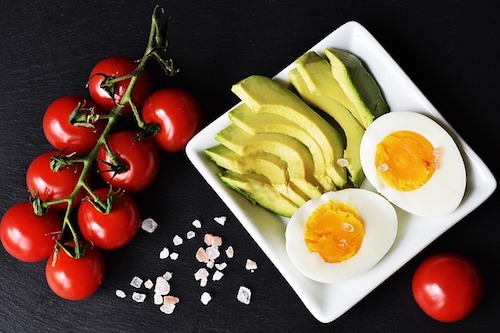Guest post by Ricard Ponsi of Workout-Temple
Nutritional ketosis is a dietary protocol whose objective is to improve our metabolic flexibility when using fatty acids as the main energy substrate. For this, the intake of carbohydrates is limited, depending on the individual, approximately 50 g net per day.
With this we generate low levels of insulin in plasma and, subsequently, a reduction of glycogen levels in muscular and hepatic reserves. In the absence of the main fuel of our body (glucose) the ketogenesis process is activated, where the liver will produce ketone bodies to feed the different tissues and cells.
KETOSIS is a NATURAL state that human beings have experienced since the beginning of time. Therefore, we are evolutionarily adapted to use both energy substrates (ketone bodies and glucose), which means that past civilization may have consciously sought a state of fasting or induced ketosis. This is why, evolutionarily speaking our physiology seeks an alternative mechanism to glucose as it is the only source of energy.

Photo source: https://pixabay.com/
Nutritional ketosis and metabolic flexibility
We can define the metabolic flexibility as the efficiency of our body when using energy substrates depending on demand such as walking, running or sprinting. Remember that, although our glycogen reserves (both muscular and hepatic) are limited, the same is not true of our fat stores, the latter being able to represent a much greater amount than the former. So… Why doesn’t our body use fats? What happens is that in a traditional diet based on hydrates (and not always from the best sources) our body always finds plasma glucose and glycogen stores full. Therefore, it does not need to look for any other energy source. Our body has simply ‘forgotten’ how to use fats as energy. It is here when the ‘low carb’ or ‘ketogenic’ guidelines are an interesting tool.
Adaptation to a new fuel
It is the process called Ketoadaptation, which we could define as the process through which human metabolism adapts to the use of fats optimally as the main source of energy. In the beginning a drastic change it can condition sports performance and your daily life, but in most of the cases the symptoms are diluted after the first week.
Symptoms of Keto-adaptation:
– Fatigue
– Worse sports performance
– Dizziness
– Cramps
– Constipation
– Palpitations
Once past the moment of adaptation we will see how the symptoms disappear, signal that our metabolism works optimally and achieving efficiency in both our sports and personal performance.
Very important considerations
Ketosis is NOT a pathological state. And I must emphasize this because, in a still very widespread way, nutritional ketosis is often confused with diabetic ketoacidosis.
Many symptoms may be due to a lack of electrolytes during the beginning of the ketosis process. There is a reduction in glycogen levels and, as a consequence, also a loss of water associated with this glycogen. With this loss of water there will be a ‘drag’ of electrolytes that we should know and replace, with special emphasis on 3 of them.
– Sodium DRI = 5000 – 7000 mg
– Potassium DRI = 1000 – 3500 mg
– Magnesium DRI = 300 – 500mg
I must emphasize that nutritional ketosis is NOT a hyperproteic diet, but moderate or protein-adjusted. The amount of protein is maintained at constant values depending on the objectives of the subject, and can range between 1.4 to 2.0 g / kg body weight.
Ketosis and sports performance
Resistance discipline: In this type of activities there are promising investigations and cases of ketoadapted athletes where the fat / glycogen use ratio is optimized, which positions as a great tool to maximize performance. Nutritional ketosis improves fat oxidation and metabolic flexibility, which is vital in long-term efforts where the main energy system is aerobic.
Discipline of strength: In disciplines where the main component is strength and power, the dominant energy substrate is the path of phosphogens, which is not impacted by a nutritional ketosis.
Hypertrophy training: This modality seeks to increase the total volume (series and repetitions) so the glycolytic pathway is a very important metabolic pathway. Since nutritional ketosis reduces muscle glycogen levels and also circulating insulin, it makes sense to think that it is not the optimal state to build muscle mass.
Conclusion on keto diet
In my opinion, the ketogenic diet can be an interesting strategy to introduce in periods of 6 to 10 weeks (a couple times a year) and benefit greatly from its effects.
During the intervention time there are very notable improvements in fat loss (extensive benefits proven), while maintaining the muscle mass and keeping performance levels measured through RM in different exercises.
Guest post by Ricard Ponsi and Pere Coll
Originally posted on the Workout-Temple website here.


